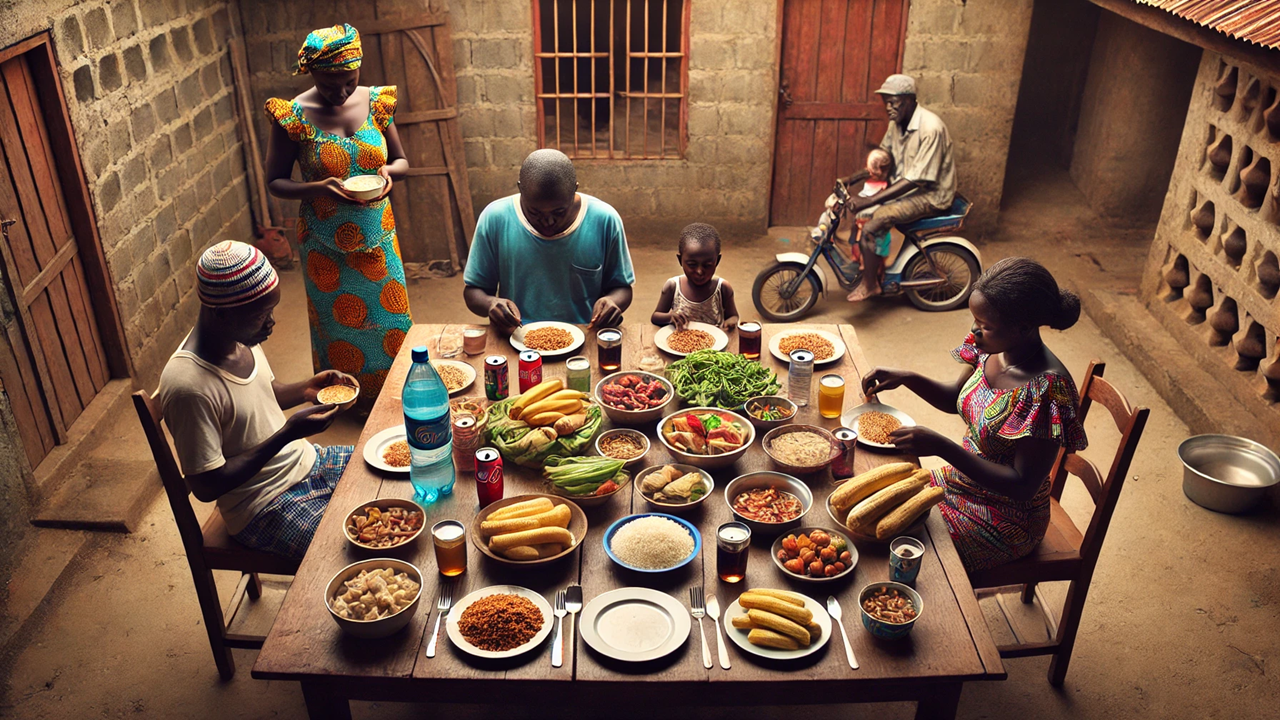How Rising Costs Deepen Poverty in Côte d'Ivoire and Impact Families
A recent World Bank report examines how soaring food and energy prices in Côte d'Ivoire are forcing poor households to adopt drastic survival strategies, deepening a cycle of poverty. The study reveals the heavy burdens placed on women, the risks facing children, and the need for strengthened safety nets to support vulnerable communities.

Amid a global landscape marred by economic shocks, climate change, and post-pandemic aftershocks, the report If Children Aren’t Full, Can Adults Eat? by the World Bank offers a sobering look at how poor households in Côte d'Ivoire are grappling with surging food and energy prices. The findings are not only distressing but also reveal the profound social and psychological toll on families, highlighting coping mechanisms that often amplify their hardship rather than alleviate it.
Struggling to Survive: The Drastic Coping Strategies of Poor Households
For many low-income households in Côte d'Ivoire, the cost of necessities has become prohibitive, leading families to make difficult choices to survive. Households are turning to cheaper, less nutritious foods, rationing meals, or skipping them altogether. Mothers in particular are forgoing their own needs, prioritizing their children’s sustenance even as their health suffers. Rising healthcare costs have pushed families toward traditional medicine instead of modern healthcare, while others resort to selling essential assets like livestock or business equipment—sacrifices that secure today’s needs but strip away tomorrow’s livelihood.
Many families also find themselves trapped in a cycle of debt. Small, community-based loans and credit schemes become lifelines as they struggle to cover daily expenses. However, without a steady income, repayment often adds another layer of financial strain. Social connections, typically a source of resilience, are also affected, as households are forced to limit their participation in community events, further isolating them in times of need.
Gendered Impacts: The Weight on Women’s Shoulders
The report underscores a gendered dimension to these hardships. As families adapt to economic pressure, women disproportionately shoulder the burdens of both unpaid domestic labor and child care. With limited options, mothers increasingly take on additional responsibilities outside the home to supplement household income, often working long hours in low-paying jobs.
Men, meanwhile, face different but equally challenging issues as many experience job loss, especially in informal sectors hit hardest by the crisis. Unable to fulfill traditional roles as breadwinners, some men face a crisis of identity and esteem, which often strains family dynamics. For children, the impacts are particularly severe: reduced food security, increased dropout rates, and in the case of girls, greater risks of early pregnancy as economic hardship drives them to seek financial support through relationships.
Resilience in Crisis: Social Programs and Safety Nets
The report identifies social safety nets as vital for vulnerable families. Programs like the Productive Cash Transfer Program provide essential relief by helping families cover basic expenses, access healthcare, and keep children in school. Informal savings groups, which allow members to save and borrow within their communities, offer another buffer against economic instability. Such initiatives have proven effective in maintaining household resilience, though the report recommends expanding these programs to reach more people in need.
Regional Disparities and the Path Forward
The study finds that economic hardship is not experienced equally across Côte d'Ivoire. In urban areas like Abidjan, the rising cost of fuel severely impacts mobility and access to work, whereas rural regions face distinct challenges related to agriculture and food production. The report advocates for targeted, multi-sectoral interventions that address these unique regional needs and bolster resilience across diverse communities.
Recommendations for a Better Future
If Children Aren’t Full, Can Adults Eat? concludes with policy recommendations aimed at reversing the downward poverty spiral gripping Côte d'Ivoire’s poorest. Key among these is the expansion of safety net programs to prevent vulnerable families from falling into destitution. Improving access to quality jobs, bolstering social safety nets, and addressing gender-specific challenges are essential. Additionally, the report calls for educational and nutritional support tailored to children, especially girls, to mitigate risks of early pregnancy and school dropout.
The World Bank’s report underscores the urgent need for concerted action to support Côte d'Ivoire’s poorest households. Without expanded social programs and targeted interventions, the cyclical nature of poverty is likely to worsen, with impacts reverberating across generations.
- FIRST PUBLISHED IN:
- Devdiscourse










